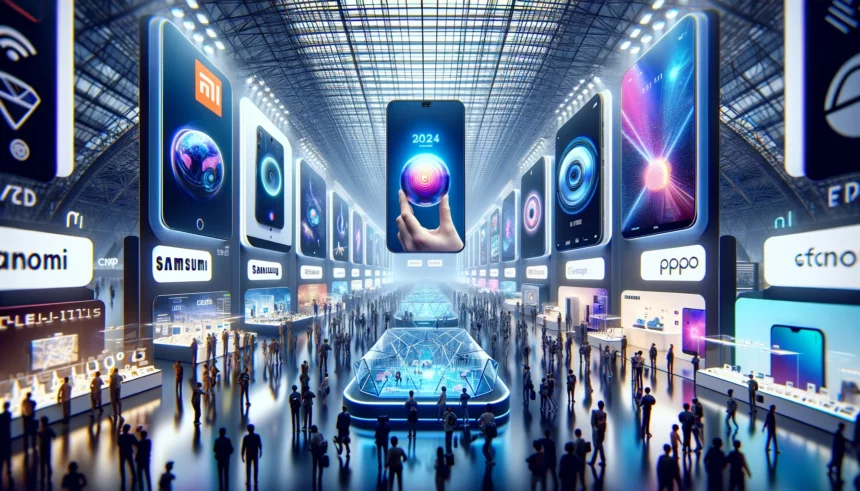At this year’s Mobile World Congress (MWC) in Barcelona, the spotlight was on some of the most innovative gadgets and concepts from global tech powerhouses. The week-long affair, known for being the premier event for mobile technologies, did not disappoint, showcasing cutting-edge devices from Samsung, Xiaomi, Lenovo, Tecno, and more, each pushing the boundaries of what’s possible in the realm of mobile tech.
Among the standout innovations was Lenovo’s Project Crystal, a laptop concept that’s hard to believe until you see it. Imagine a laptop with a transparent, 16-inch microLED display, a glimpse into what could revolutionize the way we interact with our devices. Designed by Lenovo’s ThinkPad division, this concept aims to blend advanced display technology with AI to enable new real-world applications, like sharing your screen with someone sitting opposite you without the need to turn the device around or overlaying digital information on real-world objects using its camera for augmented reality (AR) experiences. Although still a concept, Project Crystal represents a bold step into the future of computing.
Xiaomi also made waves at MWC 2024, not just with its electric car, the SU7, and the robotic CyberDog, but with the unveiling of the Xiaomi 14 Ultra. This flagship smartphone is a photographer’s dream, boasting four 50MP cameras developed in collaboration with Leica. From its variable aperture main lens to its ultra-wide lens offering expansive field-of-view shots, the Ultra 14 is a testament to Xiaomi’s commitment to pushing the envelope in mobile photography. Add to that a dedicated camera grip for a more traditional shooting experience, and it’s clear Xiaomi is blurring the lines between smartphones and professional cameras.
Samsung introduced the Galaxy Ring, a health-tracking wearable that redefines the category. Eschewing the traditional smartwatch design for a sleeker ring form factor, this device offers a range of health metrics monitoring, from pulse to sleep patterns, showcasing Samsung’s innovation in wearable technology.
Tecno’s unveiling of the Pocket Go, an AR-enabled gaming handheld, marks a significant leap forward for portable gaming. By integrating AR technology, Tecno offers gamers a novel way to experience their favorite titles, with the action unfolding through AR glasses, creating the illusion of a massive screen right before their eyes. This device, powered by a Ryzen 7 processor and featuring a substantial 1 TB of storage, is a game-changer, quite literally.
Oppo’s foray into augmented reality with the Air Glass 3 was another highlight of MWC 2024. These AR glasses, equipped with a voice assistant powered by Oppo’s AndesGPT, bring digital overlays into your field of vision, offering a glimpse into a future where our digital and physical worlds merge more seamlessly than ever before.
Lastly, Motorola’s Adaptive Display phone showcased a novel take on flexible displays. This device can roll into an arch, transforming from a phone to a smart bracelet, demonstrating the potential for new form factors in mobile technology.
As MWC 2024 wraps up, it’s clear that the future of mobile technology is not just about making phones smarter or faster, but about breaking down the barriers between our digital and physical realities, enhancing how we live, work, and play.
















